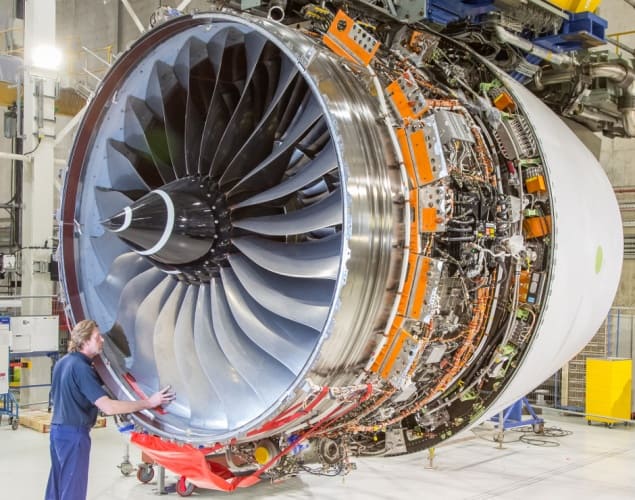 What might the future look like for manufacturing when we have to take sustainability more seriously? Stuart Nathan puts on his thinking cap. It's a straw trilby, if you're interested.
What might the future look like for manufacturing when we have to take sustainability more seriously? Stuart Nathan puts on his thinking cap. It's a straw trilby, if you're interested.
Is sustainability sustainable? I don't mean the concept itself. At a time when we are supposed to be on the lookout for runaway growth in all sorts of environmental markers, one thing that is definitely growing exponentially is the use of buzzwords, and that threatens to rob them of their meaning and their force.

At an event organised by design and production software major Dassault Systemes yesterday (2nd July), keynote speaker James Woudhuysen, a physicist turned futurologist and commentator, noted that Gordon Moore, originator of the Moore’s Law axiom, never actually proposed a law or used the word exponential in his original paper, but use of the word exponential has certainly increased exponentially.
Dassault's event was about sustainable industry, and explored the implications of the term. The changes that true sustainability will require from industry are profound and go beyond buzzwords. While talk of "sustainable people" might be pure sustainababble, to borrow an irresistible term from Woudhuysen, it's worth thinking about what a truly sustainable vision of industry would be.
It would take product stewardship to a level so far unseen. Since the Industrial Revolution, the model for manufacturing industries has been to buy raw materials, convert them into finished products (almost always involving a supply chain on the way, and industrial tiers of subcontractors and suppliers) and then sell them at a profit. And there the chain ends. If we are to think sustainably – that is, ensuring that the pool of usable raw materials is not permanently depleted – then we will have to adapt that business model so that manufacturers can still make a profit when they return the materials to the supply chain and render any hazardous aspects of them harmless.
It might be that the recycling aspect of the "circular economy" would fall to a new industrial sector, but the way the Western economy works, that sector would still have to generate a profit for its investors (it might work differently in regions with a different economic model, such as China). But as the feeling at a political and public level is that the manufacturer should take responsibility for recycling, there would have to be some sort of transaction between manufacturer and recycler.
This raises an interesting question. Who is the manufacturer? Let's take a seemingly trivial example. If I go to Marks & Spencer's and buy a ready meal, I'm going to be left with some plastic packaging. In the interests of sustainability, that needs to be recycled. Who is the manufacturer of that material? M&S, the company that supplied it with the packaging the first place, or the chemical company that made the plastic? Whatever the answer is, the manufacturer is not going to directly handle the resulting material themselves because it becomes municipal waste from a variety of producers.
Let's take a slightly more complex example. Jaguar Land Rover, to pick a manufacturer at random, builds a car. It's made mainly from metals (largely aluminium, in JLR's case) which are highly recyclable. At the end of its life, having passed through the hands of several owners (and JLR will most likely not have been involved in those transfers) it needs to be recycled. Many of its components will have been made by companies in JLR’s supply chain, and that origin will have been captured as part of its business processes. Will JLR have to become a reverse distributor, taking responsibility somehow for returning those components back to their origin for disposal and recycling? Or will another business process have to be developed?
This is even more complex than it seems. I'm indebted to friend of The Engineer Prof Mark Miodownik of UCL for a couple of thought-provoking examples. The touchscreen devices which so many of us have incorporated into our everyday lives depend for their function on the extraordinary properties of one element: indium. Touchscreens will not work without indium tin oxide, a transparent conductor. No other element has those properties; and indium is quite scarce.
Most of it comes from China as a byproduct of zinc mining, and at the rates we are producing touchscreen electronic devices we only have enough for the next couple of decades. Now, you and I could probably do without our touchscreens, but in the developing world touchscreen phones are the primary means of accessing the Internet, and farmers, fishermen and small manufacturers depend on them for getting the best price for their produce. Somebody is going to have to seriously work on a process for recovering and recycling the indium from end-of-life touchscreens.
The aerospace industry is one that is probably more familiar to most Engineer readers, and it has a similar problem. Low-cost flying (for all that it is a contributor to climate change) is a result of the development of more fuel-efficient engines that operate at much higher temperatures than those of a few decades ago. That fuel efficiency is a direct result of the extraordinary heat resistant properties of rhenium, a component of the nickel super alloys from which jet engine turbine blades are made. Guess what? Rhenium is also quite scarce. It's one of the rarest elements in the Earth's crust; 70 percent of all annual production goes into turbine blades (the rest is used in industrial catalysis and already recycled), and we're going to run out of it at current rates of production. Are jet engine manufacturers going to have to build rhenium recovery into their business models to keep operating?
Questions like these are one reason that some people are seriously thinking about space mining. Elements are produced in the cosmic forges of supernovas, and they don't just exist on Earth. There might be deposits on the moon – especially if the moon originated from a collision with the young Earth relatively soon after the formation of the solar system – and they will certainly exist inside asteroids. But the cost and complexity of going to find them, extracting them and bringing them back to Earth is certainly not going to be economic in anything like the foreseeable future, and so turning the industries that produce them into part of the circular economy is probably the only practical solution.
So what is a sustainable person? Is it somebody who can work out how industry can continue to operate on anything like its current economic model while taking these factors into consideration? Is it somebody who can adapt and learn new skills that don't currently exist to handle such processes? Is it somebody who can cope with the changes to a way of life we have come to take for granted as the iron laws of elemental properties and abundance in the Earth's crust take hold? Or is that so much sustainababble?
We going to have to find out. These are interesting times – and I should point out that the ancient Chinese who coined the expression "May you live in interesting times" meant it as a curse. I prefer to see it as a challenge, and I hope that engineers do too.










UK Enters ‘Golden Age of Nuclear’
But what is ultimately to be done with all the irradiated waste? Concentrating on a few points of electrical generation is high risk in today's...